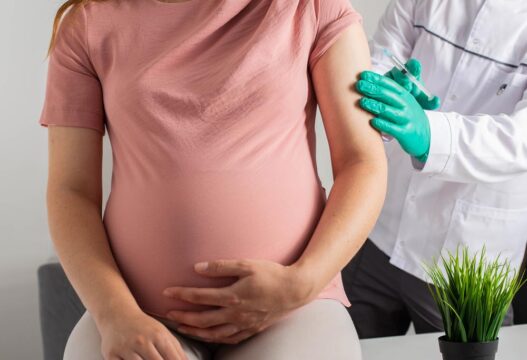Advertisment
What the papers say – weekly digest (06/10/23)

Your weekly digest of the top healthcare stories, covering news published from 02/10/2023 – 06/10/2023.
Daily Express
Eating disorders more than doubled among young people during the pandemic, research has revealed. A&E visits and hospital admissions for bulimia and anorexia increased 120% among 10 to 17-year-olds. Researchers compared the observed and expected rates of hospital visits and admissions among ages 10 to 17, 18 to 26, 27 to 40 and 41+ in Canada for the three years before the pandemic and the Covid period from March 2020 to the end of August 2022. Findings were published in the Canadian Medical Association Journal.
Children’s cancer charities are urging the Government to bring together leading researchers to transform treatments. A lack of investment and ‘’layers of bureaucracy’’ mean the UK’s capacity for clinical studies is ‘’not fit for purpose’’, one leading charity claimed. Solving Kids’ Cancer UK is now spearheading a campaign to step up research efforts and discover life- saving cures. The charity, with the support of 10 others, is calling on the Government to unite scientists, medics, industry partners and regulatory bodies to transform the research landscape and offer hope to thousands of families. The Department of Health and Social Care said: ‘’Treatment of childhood cancers has greatly improved and the majority now survive cancer, with survival rates up to 86.2%. We know how important research is and invest £1 billion a year.’’
Our love of fizzy drinks has put the UK second in Europe in terms of how many we guzzle. We get through 4.4 per person each week – close to America’s 4.9. It is double Sweden’s 2.2, well above France’s 2.8 and Germany’s 2.7, and almost three times Finland and Italy’s 1.5. Only Belgians, on 5.2, consume more than us. The biggest addicts are in Rwanda (34.2), a team at Tufts University in Massachusetts, found. Given the health risks, they suggest ‘’marketing regulations and taxes’’ as solutions. The study was published in Nature Communications.
UK bladder health start-up Jude is expected to expand internationally and roll out new services, including digital prescriptions for those hobbled by the pain of urinary tract problems and the limitations of incontinence. With a market of 2.3 billion people globally, the number of sufferers outstrips those for diabetes. Supporting healthy ageing and fitter bladders with symptom-to-solution care are London-based Jude’s targets after recently raising £3.4m ($4.2m) of seed funding.
Patient safety will be ‘’close to the line’’ as junior doctors and consultants stage their longest joint action in England, the Chancellor has claimed. Jeremy Hunt said it was ‘’incredibly depressing’’ to learn a medic in Liverpool was paid £7,853 to cover a shift during strikes in June. Asked about patient concerns, he said: ‘’We’re getting close to the line.’’ His remarks came at the start of a joint three-day walk-out over pay rises.
Women are being offered a new form of labour pain relief – squeezing a hair comb. Surrey and Sussex NHS Healthcare Trust’s maternity department suggested the method online. It wrote: ‘’When the comb is tightly gripped in the palm of your hand, this pressure distracts your brain and supports the body to release endorphins.’’
The world’s first breathalyser toothbrush has been designed to help drivers know if they are still over the limit the morning after. The invention aims to get people to think twice if they have a hangover. Research has revealed half of British adults aged 18 to 34 have taken to the roads despite not feeling entirely sober. A University of Cambridge study recently found 40% of drivers admitted they did not know the drink-drive limit, while 35% were unaware of the penalties if they were caught. The ‘’brushalyser’’ is in tests for release next year.
The Guardian
Patients who are female, black, Asian or less well-off are significantly less likely to be offered heart valve surgery on the NHS in England, according to a report that experts say is ‘’deeply concerning’’. People develop aortic stenosis when their aortic valve narrows as a result of calcium buildup, impeding normal blood flow. This causes shortness of breath, lightheadedness and chest pain. Aortic valve replacement (AVR) surgery not only relieves these symptoms but increases life expectancy and improves quality of life. As many as one in four of those with severe or very severe aortic stenosis will die within five years without AVR. Dr Clare Apleby, a consultant cardiologist at the Liverpool Heart and Chest hospital and an author of the study, said public health initiatives to understand and tackle these inequalities should be prioritised.
Transgender hospital patients in England will be banned from being treated in female – and male-only wards under plans announced by the health secretary, Steve Barclay. In a speech to activists at the Tory party’s conference in Manchester, Barclay also promised that a patient’s request to have intimate care provided by someone of the same biological sex would be respected. He vowed to update the NHS constitution to give effect to the proposals after consultation, saying the changes would protect the privacy, dignity and safety of all patients.
A daily cup of tea can slash the risk of developing type 2 diabetes by more than a quarter, a study shows. Compared with people who did not drink tea, those who did reduced their chances of becoming a type 2 diabetic by at least 28%. It also reduced the risk of developing prediabetes by 15%. The study included 1,923 adults aged 20 to 80 living across eight provinces in China. The researchers, from the University of Adelaide in Australia and Southeast University in China, found that a fermented variety known as dark tea, which is not widely available in the UK, reduced the risk by nearly half (47%).
Computer modelling could help detect which patients are at a higher risk of lung cancer. Experts hope it can be a step towards using screening to pick up a number of diseases early on. A team from University College London, University of California, University of Cambridge and the Alan Turing Institute in London used UK and US data of 243,000 smokers. They found the model predicted lung cancer with an 83.9% sensitivity and deaths from the disease with an 85.5% sensitivity. The findings are in PLOS Medicine.
Pharma giant AstraZeneca is paying £352.3 million to settle US product liability lawsuits over its heartburn drugs Nexium and Prilosec. But the company said: ‘’We continue to believe these claims are without merit and admit no wrongdoing in the settlement agreement. These settlements avoid continued costly litigation and allow the company to move forward.’’ The payments end court claims in Delaware and New jersey. The suits claimed it failed to warn of the risk of kidney disease and other conditions when taking the drugs.
An inquest report has warned that prisoners are ‘’at risk of death’’ because of failures in the healthcare system, after a man killed himself at Wormwood Scrubs prison in west London 48 hours after arriving there. The inquest scrutinised a process known as assessment, care in custody and teamwork (ACCT). This is the care planning process for prisoners identified as being at risk of suicide or self-harm. The court heard evidence that 65% of primary healthcare staff in prison were agency staff.
The Observer
More than one in 10 sexual harassment complaints against doctors are not investigated by the General Medical Council because of an ‘’arbitary’’ rule, the Observer can reveal. According to data obtained under the Freedom of Information Act, 13% of sexual misconduct complaints made between the years 2017-18 and 2021-22 were closed without investigation because the GMC is prevented from considering alleged incidents more than five years after the event. The figures show the GMC refused to investigate 170 complaints relating to sexual assault, attempted rape, and rape in the period analysed. In 22 of those cases the five-year rule was cited. It received 566 sexual harassment complaints in the same period.
Almost two million people are still suffering from Long Covid in the UK, the pandemic inquiry heard yesterday. Official figures show around 1.9 million have continuing ailments related to catching the virus. The hearing was also told that those over 70 had a 10,000-times greater risk of dying than under-15s. On average, each victim lost over 10 years of life, while mortality was 2.6 times higher in the most deprived areas, compared to the most well-off. The figures were read out by leading counsel Hugo Keith KC on the first day of the inquiry’s latest phase – expected to last nine weeks – that focuses on the Government’s role.
A battery-powered gadget first used in veterinary medicine can help ease some of the worst symptoms of long Covid, a study has shown. The Arc4Health armband is the size and shape of a TV remote and sits in a velcro cuff – similar to a blood pressure monitor – that is then strapped around a leg or arm. Fifty-four Arc4Health users with long Covid – which affects about two million Britons – answered a survey about their symptoms at the start of the study. Fatigue was the most commonly reported problem, as well as the most reduced at the end of the 12-week investigation. Previous clinical trials have suggested the treatment may ease joint pain and heal sprains and strains faster. It is often used to treat injured racehorses.
Scientists have busted the myth of ‘’fat but fit’’. Although up to one in five obese people appear well they still have a far higher risk of health problems. Researchers in Germany looking at those classed as metabolically healthy obesity (MHO) – known as fat but fit – were still 50 per cent more likely to develop diabetes or coronary heart disease. The study said that though people considered to have MHO have not been prioritised in the past, weight loss is still important for all those overweight. Women are more likely to have MHO (7-28%) than men (2-19%). The study was presented at the European Association for the Study of Diabetes meeting in Hamburg.
The organisers of a triathlon on a lake fed by the River Eden in Kent have launched an investigation after a number of competitors fell ill with diarrhoea and vomiting. The Castle Race Series, organisers of the triathlon and other competitions at Hever Castle last weekend, said rigorous tests in the days leading up to the event had indicated the water was safe to swim in. A spokesperson said the welfare and safety of competitors and staff was a priority. An investigation by the UK Health Security Agency (UKHSA) found 88 participants had reported sickness and there was evidence of norovirus infection, but reported it might not be possible to establish the exact cause.
One of the world’s largest developers of HIV drugs is working on a treatment that patients will be able to inject at home every two to three months, saving them regular clinic visits. ViiV Healthcare, a GlaxoSmithKline-controlled joint venture, says that by the end of the decade, a new formulation with an autoinjector will make it easy and safe for patients to use the drug.
The Times
A cheap malaria vaccine developed by Oxford University has been approved by the World Health Organisation and is expected to save the lives of millions of children. The disease is estimated to have caused 627,000 deaths in 2020, mostly of small children in sub-Saharan Africa. The annual global death toll has roughly halved since 2000. WHO officials said that Oxford’s R21/Matrix-M vaccine, used in combination with other measures such as bed nets, marked a big step towards ‘’a malaria-free world’’. The vaccine is expected to cost less than $4 a dose.
A popular slimming jab keeps working for up to three years in patients with diabetes, according to some of the first real-world data on the drug. Semaglutide is approved for NHS use as Ozempic for diabetics and Wegovy for patients who are obese. However, the National Institute for Health and Care Excellence, the treatments watchdog, has recommended its use for only ‘’a maximum of two years’’ t o aid weight loss, based on trials. Wegovy became available in Britain last month and is prescribed to patients with a BMI of more than 30 – or 27 in the presence of comorbidities – via specialist NHS services. The government has also announced plans to test use of the jabs in the community via GP prescribing.
Consultant doctors will pause strikes until November to try to encourage ministers into talks, calling for negotiations via the conciliation service Acas. Senior medical and NHS leaders urged the government to accept the olive branch from the British Medical Association and end strikes before the winter. In a letter to Rishi Sunak, Dr Vishal Sharma, the BMA’s consultant leader, says the union was ‘’willing not to call further strikes for four weeks to facilitate negotiations taking place’’.
Steve Barclay, the health secretary is set to announce that three new medical schools will open to British undergraduates next year under plans to expand the number of homegrown NHS doctors. The government will fund 205 more medical school places from September 2024 to help tackle chronic staffing shortages. The bulk of these will be at medical schools sited at Worcester, Chester and Brunel universities. These schools currently only offer places to overseas students after the government initially refused to provide NHS funding.
A Hungarian biochemist who is the daughter of a butcher has been jointly awarded the Nobel prize for medicine for creating a revolutionary type of vaccine. The technology behind the mRNA vaccines used to combat Covid-19, which could one day lead to a cancer vaccine, was developed by Dr Katalin Kariko, a Hungarian-American, and Dr Drew Weissman, an American physician. The pair have been awarded the Nobel prize for medicine for their work, hailed by the committee for contributing to an ‘’unprecedented rate of vaccine development during one of the greatest threats to human health in modern times’’.
Unsecured creditors of parts of a healthcare group behind a virtual GP service used by NHS patients are facing a deficit of about £300 million after it collapsed into administration. Insolvency experts at Alvarez & Marshal were appointed in August at Babylon Partners, the main British operating company of Babylon, after the group’s New York stock market listing soured and Albacore Capital, a secured creditor of Babylon Partners, called time on its debts. Babylon was founded in 2013 by Ali Parsa, an entrepreneur and former Goldman Sachs banker, with the intention of transforming the global healthcare market. It was championed by Matt Hancock, the former health secretary, during the Covid-19 pandemic.





